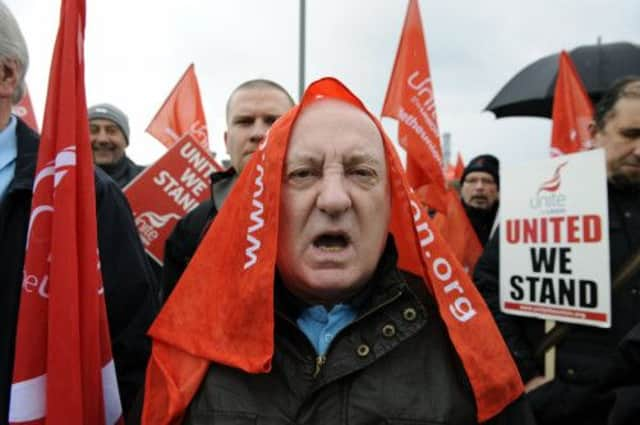Tom Peterkin: We can learn from union reactions


With thousands of jobs at stake and the very existence of two of the most visible and important industrial sites in the country at risk, it is a huge understatement to say that the past few weeks have been anxious and fraught.
Amid the headlines and the rammies, we have seen two very different approaches taken by the trade unions representing the respective workforces.
Advertisement
Hide AdAdvertisement
Hide AdAt Grangemouth, the relationship between Unite and Ineos management was marked by acrimony, rancour and suspicion.
In contrast, the offerings by GMB officials representing workers on the Clyde have been far more measured.
Some of this difference can be explained by the vastly differing circumstances surrounding the union operations in the two places.
In Grangemouth, there was the complicating factor of the row over vote-rigging allegations when it came to selection of the local Labour candidate. Leaving that aside, Unite’s defence of its workforce was shrill in tone and high on rhetoric. There were also accusations of “industrial intimidation” made against the union when it emerged that Unite members were targeting bosses at their homes.
Ultimately, Unite’s protestations proved powerless when Ineos threatened to pull the plug on the Grangemouth petrochemical plant.
It might be tempting to conclude that Ineos’s no-holds barred tactics have influenced the behaviour of GMB Glasgow-based officials, who have taken to the airwaves to outline their position on job losses on the Clyde in a far less confrontational manner.
That would be wrong, however. The reasonableness exhibited by GMB officials as they try to deal with the most difficult of situations for their members has its roots in the relationship it has taken care to forge with the management of BAE Systems.
Workers and management have always known that the work on the aircraft carriers would run out at some time.
Advertisement
Hide AdAdvertisement
Hide AdAs one union insider put it yesterday, there has been much work put in to develop a “partnership” between the unions and BAE.
While the job cuts were “brutal”, the union believes there is a need to maintain that relationship in order to mitigate the impact.
When the two crises are considered, it seems that the Grangemouth case saw conflict between unions and management at a time of co-operation between the UK and Scottish governments.
With the outbreak of constitutional hostilities accompanying suggestions that Portsmouth has been sacrificed to save Scottish shipbuilding, we have the exact opposite on the Clyde.